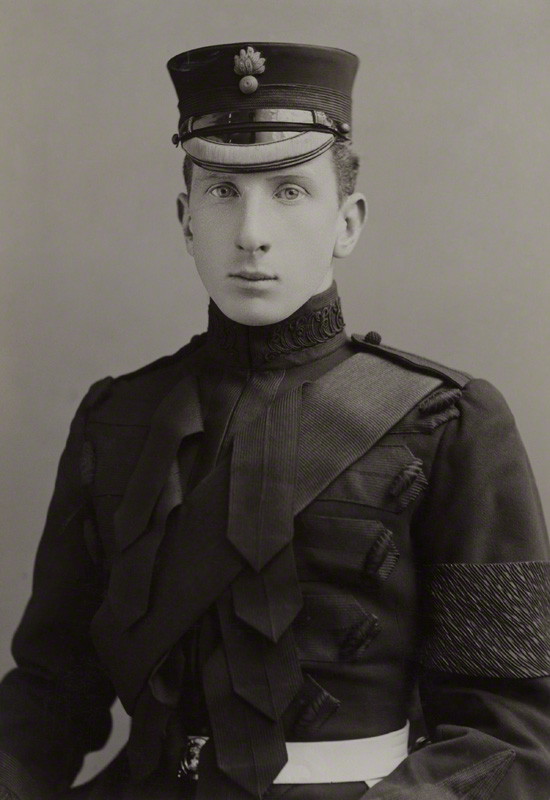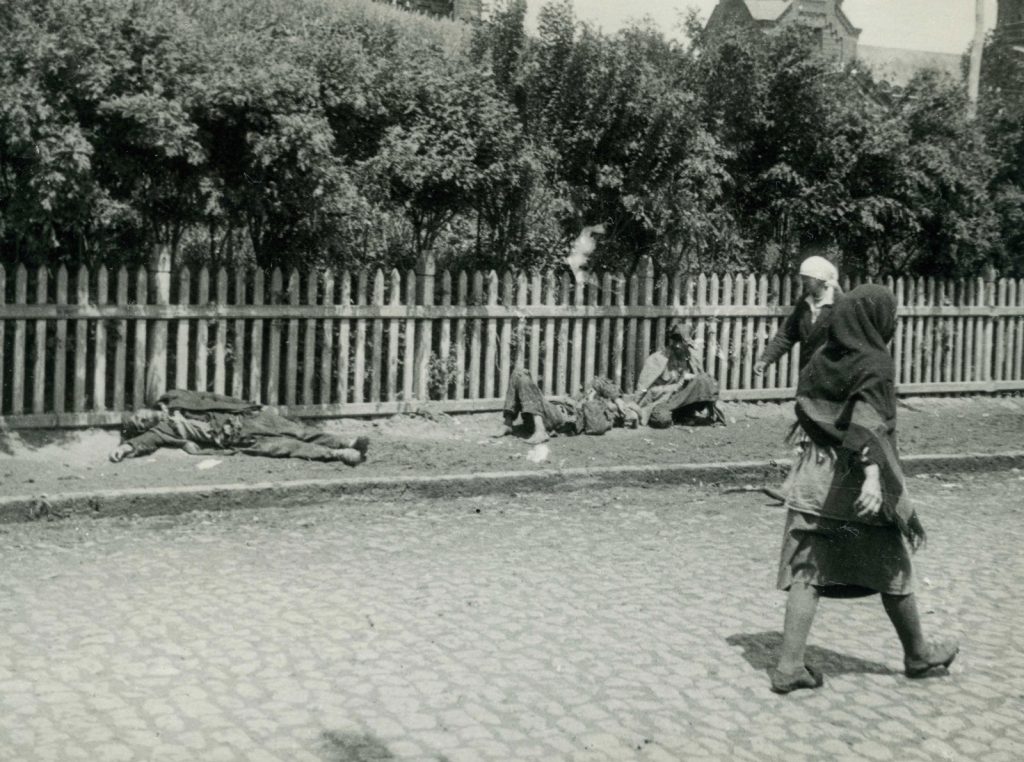RADICALS & REACTIONARIES

The 8th Duke of Northumberland, Alan Ian Percy
National noblesse oblige – the anti-communist career of Alan Ian Percy
ROGER DE COVERLEY
In this crisis, salvation can only be achieved by a return to convictions and principles which may be dubbed ‘reactionary’. But which will nevertheless earn respect and support, because they have logic and truth upon their side, and will be seen to be the only bulwark of authority amid the crumbling of altars and thrones.
Alan Ian Percy, Eighth Duke of Northumberland (1924)
When enacted in 1999, the House of Lords Act drastically changed the Upper House’s membership and culture by removing all but ninety-two hereditary peers. It constituted a vehement campaign by New Labour against anyone listed in Debrett’s. Sneeringly describing hereditary peers with mechanistic terms such as ‘obsolete’ and ‘outdated’, Blair sought to modernise an ancient constitution through aggressive class warfare. While some aristocrats were genuinely taken aback by this act, others perceived its origins decades before its final fulfillment. In particular, the writings of Alan Ian Percy, Eighth Duke of Northumberland (1880-1930) proved quite prescient.
A High Tory and deeply religious, the Duke actively engaged in right-wing politics for much of his adult life. His Grace sought to keep his beloved nation free from radicalism and maintain its unity in a shaken world following the Great War. He channeled all of his energies into actively opposing communism’s infiltration into British society. Acquiring the Morning Post in 1924, he popularized rightist thought in country house society through powerful editorials and published speeches. The Duke’s vigorous efforts to preserve hereditary privilege and defend the Empire proved quite effective in shaping Conservative opinion.
Born in 1880, he was the firstborn son of the Seventh Duke of Northumberland and a member of the house of Percy. This family traces its lineage to William de Percy, 1st Baron Percy, who arrived in England with William the Conqueror. After fighting courageously in the “Harrying of the North”, Hugh D’Avanches gratefully awarded him parcels of land in Lincolnshire and the North Riding. He later accompanied Robert of Normandy on the First Crusade and died “within sight of the Holy Land”. Buried in Palestine, his heart was brought back to England and buried at Whitby Abbey. His direct descendent Roger de Percy, fifth Baron Percy (d. 1224), signed the Magna Carta at Runnymede. The Percys acquired Alnwick Castle from the Bishop of Durham in 1309 and began fortifying it as a vital Anglo-Scottish border stronghold. Still inhabited by the Percys today, it reminds visitors of the family’s impressive achievements throughout British history. The Percys continued their ascent as one of England’s great families despite tumultuous losses in the Wars of the Roses and the English Civil War. In 1766, George III awarded the dukedom of Northumberland to a later successor. Subsequent Dukes contributed through varied roles as army officers, diplomats, members of parliaments and Privy Councillors. The sixth Duke particularly distinguished himself by joining the cabinets of both Lord Derby and the Earl of Beaconsfield as Paymaster-General and Lord Privy Seal. His eldest son continued their familial loyalty to the Conservative Party by serving as Treasurer of the Household (1874-1875) and Chairman of the National Union of Conservative and Constitutional Associations (1879-1883). These contributions created a deeply traditionalist household atmosphere.
The eighth Duke matured with strong senses of his lineal heritage and inherent abilities. He received a commission in the Grenadier Guards and obtained the Queen’s Medal in the Second Boer War. Subsequently, he fought on the Western Front during the Great War and acted as an aide-de-camp to Lord Grey. The Third Republic awarded him the Légion d’honneur in grateful recognition for his courage. Emergent from the Great War’s storms of steel, the Duke was appointed to the Lord-Lieutenancy of Northumberland by George V.
He was transformed by the war, like so many of England’s young men. Some of those who survived often returned home deeply cynical of their Edwardian upbringings; they sought to bid “Goodbye to All That”, in Robert Graves’s phrase. Conversely, others immersed themselves in right-wing politics in order to restore the jus publicum Europaeum and oppose Bolshevism. The Duke quickly centered himself within rightist, anti-communist circles and began publishing the Patriot, which popularized Nesta Webster’s writings and essays by Lord Sydenham of Combe. The Duke also was profoundly affected by stories of Red atrocities brought by refugee Romanov nobility. Determined to prevent violent revolution in his beloved Great Britain, he used the Morning Post to galvanize its readership against the 1926 General Strike. The Duke described its unfolding scenes of striking miners and trade union agitators as, “a vast conspiracy to ruin the country, to starve the workers & destroy civilisation.” While soon defeated, the strike convinced him of potential revolutionaries skulking in Spitalfields cellars and Hampstead salons whilst waiting for a moment of indecisive weakness by His Majesty’s government.

Holodomor, Ukraine
Regrettably, the Duke’s stalwart patriotism against domestic subversion occasionally led him into conspiracism and he soon accepted the ‘Judeo-Bolshevik’ discourse articulated within the interwar Right. Capably analysed by Bielefeld historian Dr. Joachim Rogalla von Bieberstein in his Jüdischer Bolschewismus: Mythos und Realität (Verlag Antaios, 2002), this distinct mentalité conjectured that the Ashkenazi origins of many Politburo members revealed a supposedly world-wide Jewish conspiracy against European civilization. Throughout the Twenties until his death, he produced such anti-Semitic tracts as The First Jewish Bid for World Power (1930) and sought to excise perceived subversions from his King-Emperor’s realm. Although the Duke’s piety and personal decency caused him to delineate clear dichotomies among Jews and thereby exculpate apolitical Orthodox rabbinates, these conspiracist beliefs appear quite disturbing in hindsight.
Besides his journalistic output, the Duke also regularly orated in the House of Lords and quickly established himself as a defender of High Toryism. Many of his speeches were reprinted in the National Review and quoted by sympathetic journalists. The Duke also wrote for the National Review and his perceptive intelligence shines in these works, with The History of World Revolution (1931) representing his highest achievement. In this essay, he sought to trace a genealogy of decay in order to fully comprehend Europe’s contemporary crises. Beginning with the fall of Rome, he defended the Teutonic Holy Roman Empire and Christendom before the Reformation. Medieval Europe’s tripartite division of society into priests, knights and peasants appealed to his abiding traditionalism and sense of social order. He was aghast at Cromwell’s regicide and agreed with Anthony Ludovici that Charles Stuart’s trial and execution permanently damaged monarchical authority and introduced mechanistic, democratic political theory. For him, 1649 led inevitably to 1789 and another king’s spilled blood before a spiteful, wild mob. For him,
The French Revolution challenged not merely the principle of monarchy, of sovereignty but of all other forms of authority. There is no single one of all the multitudinous forms of Socialism and Communism at present in vogue which did not have its origins there.
This only repeated itself in greater extremity when Nicholas II met his death at Soviet hands in 1918. Bolshevism sought to create hell on earth through worship of the meanest of the multitude. Lenin’s commissars wished to forever destroy throne, altar and ultimately quality itself, with Lubyanka firing squads and Chekist purges. The eighth Duke noted percipiently that Bolshevism’s squalid barbarity undid Whig interpretations of History as humanity progressing to an enlightened, pacific telos. He counterposed a cyclical conception of history against Whiggish linearity.
After analyzing the decay of European institutions since the Reformation, he concluded that only rightist reactionary policies could avert violent revolution and restore absolute order to a broken civilization. An ouroboric return would, he felt, ultimately renew decayed Europe if far-sighted men allowed its emergence. Within the British context, the way forward out of present crises lay in a resolute defence of Crown, Lords and Altar.
Never ameliorating his views, the eighth Duke spent his life’s remainder working in the House of Lords for his nation’s preservation. Although his personal wealth would have allowed for luxurious indolence, he shunned indulgence and remained committed to his life’s mission. Fathering six children with his wife, Lady Helen Magdalene Gordon Lennox and fully participating in his estate’s administration, he nevertheless found significant time and energy to engage within politics. He believed himself to be a helmsman for Great Britain’s ship of state as it sailed between the Scylla and Charybdis of postwar malaise and Bolshevist peril.
Consonant with Spengler’s assertion that “Optimism is cowardice”, he grimly carried on his struggle against leftist forces of anomic deliquescence. Contemporary Tories concerned about the national future would do well to study his writings and personal legacy. Defending traditional order against anarchic revolution, his echoing words ought to inspire Rightists in our own time.











I every time spent my half an hour to read this website’s articles daily along with a cup of coffee.